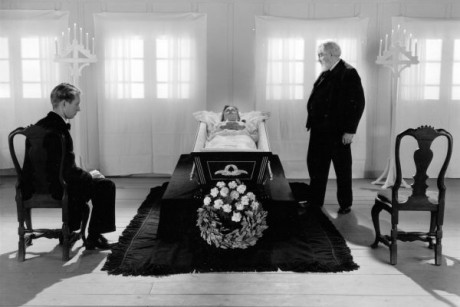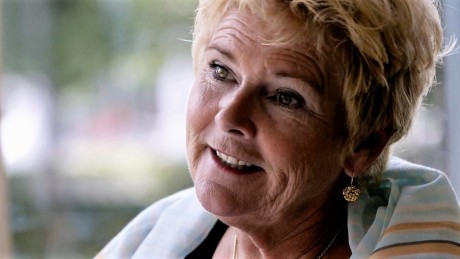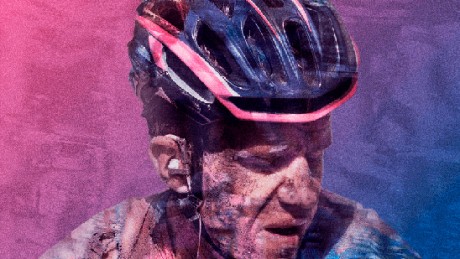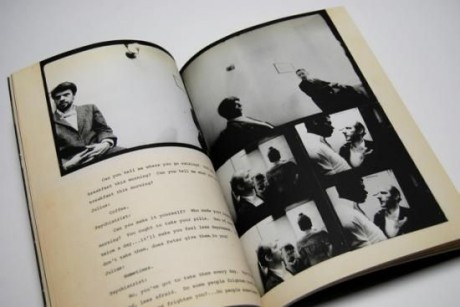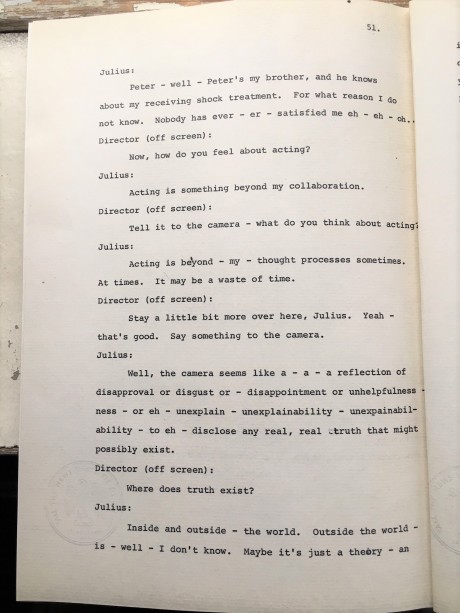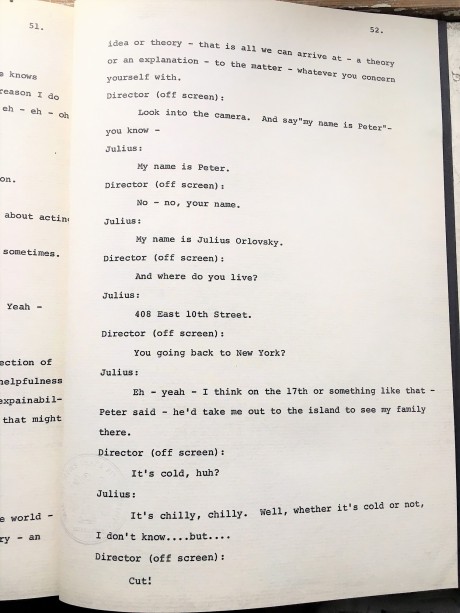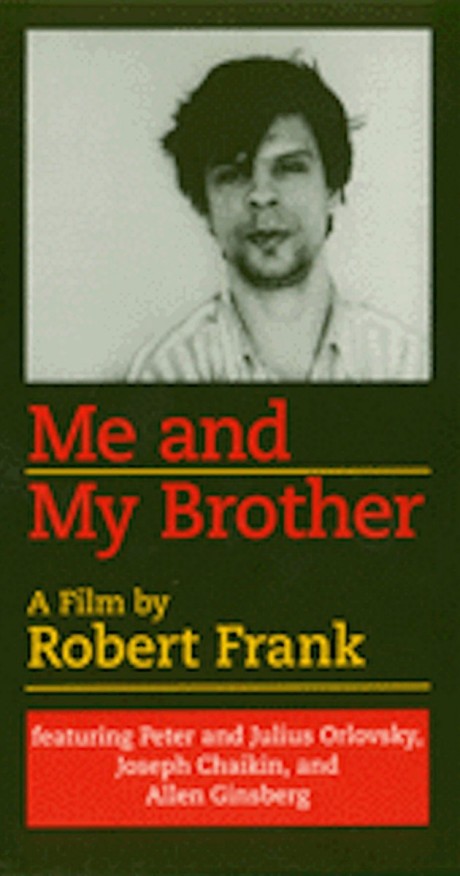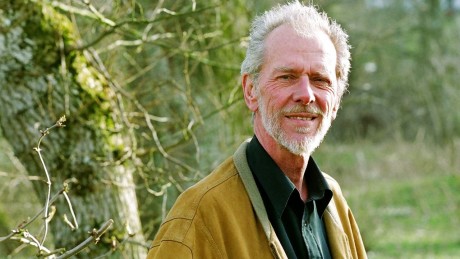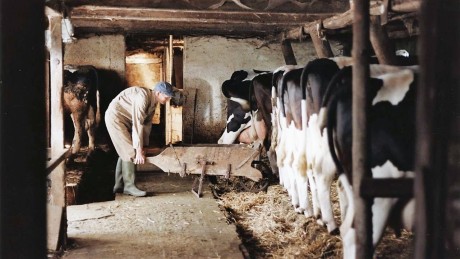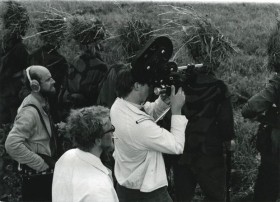


Boris Benjamin Bertram: The Human Shelter
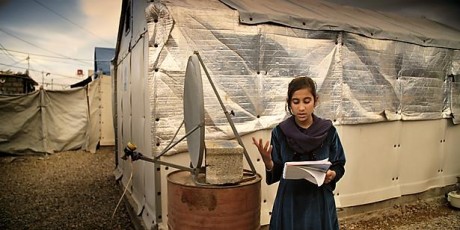
”The Human Shelter består af otte kapitler. Hvert kapitel har et shelter og en menneskelig fortælling om hjem som omdrejningspunkt. Hver og en af disse er med til at sætte gang i publikums egne tanker om, hvad hjem betyder for os. For dig…” (fra filmens pressemateriale)
1
Kantokainen, Norge. Jeg bestemmer for mig selv med det samme at følge den unge kvindes forklaring på tid, et diktum som både er hendes opvækst og hendes beslutning. Tiden går ikke, den kommer. Det vante ur er her dyrenes selvfølgelige liv og landskabets skiftende lys. Jeg tror, det er hvad hendes smukke sang handler om. Denne alvorlige skønhed i rensdyr-nomadens fire hjem til de fire årstider.
2
New York City, USA. Kan den omhyggelige arkitektidé fra MOMA’s velordnede, perfekt ventilerede kontorer, tegnestuer og udstillingssale virkelig gennemføres i flygtningelejrenes kaotiske, overophedede og dybtfrysende vold?
3
Arabat, Irak. Ja, for han har penge, han har i sit hus en dyr pose til hvert af sine tøjsæt, som han husker prisen på. Kvinderne udsmykker arkitektektens og ingeniørens og udstillingsredaktørens shelters smukkere end deres drømme. De har vand og el og er undsluppet den visse død. Og de vil bo i digteriske hjem i UNHCR lejren. Og forfatteren på 13 år læser sin tekst op for mig.
4
Manha Loa, Hawaii. NASA, Hi-Seas, Mars habitat. Jeg er flyttet ind i Ridley Scotts film med Matt Damon som dyrker kartofler for at overleve til, han bliver hentet igen, nu efter rumekspeditionen har måttet efterlade ham alene på Mars. Den dyrkede grønne plante i drivhuset smager af at være hjemme. De er en gruppe på seks, eller er det otte. Det er dag 223 på forsøgsstationens Marsbosættelse, men der er jo en asfalteret vej hjem, nemlig. Og kan jeg så tro på eksperimentet? Jeg er hos arkitekten som tegner det kommende hus på Mars, jeg er hos hans elektriske blyantspidser og hos hans overbevisning om tegningers skabende evne. Hvor er jeg altså skeptisk, selv astronautens violins country melodi finder jeg for optimistisk. Dog er jeg charmeret.
5
Kampala, Uganda. Huset i træet. Min barndoms evige drøm. Musikerens gennem 15 år. Men så også et færdigt hus inde i kronen og en trappe med repos og gelænder at gå ned ad i festtøj så der kan danses med en smuk kvinde på en veranda med betongulv. Og så tilbage, selvfølgelig, tænker jeg, op ad trappen, som bestemt ikke er en stige, op til Chesterfieldstolen og den brede seng. Et liv i musik og farver, mest grønne. Jeg er altid lykkelig i mit shelter, siger han.
6
Tokyo, Japan. Hun er gadefotograf, en nutidig og japansk Vivian Maier. Hun lever i sit badeværelse som er hendes mørkekammer og værksted og skærm og helle midt i storbyens larmende uoverskuelighed, som hun også her højt oppe fra i sit fotografis poesi skildrer som landskab af skønhed i tyst ro i en uendelig gråtoneskala må det være. Han derimod lever i et kollektiv med andre ligesindede unge undsluppet forældrenes hjem af snæverhed for med vennerne at kaste sig ud i bylivet nede på de gaderne og deres støj og lyd og indtryk og nye møder for nu hjemme i kollektivet at spise og sove.
7
Lagos, Nigeria. At bo på havet. Gaderne er kanaler mellem husene på pæle, bilerne er kanoer. Hårkunsten er af særlige grunde vigtig i det så våde offentlige rum. Hjemmet er af bræddevægge. Opslagstavlen er minder fra familielivet i andre hjem tidligere i huse, vel på pæle som svømmede de i havet.
8
Jökulheimar, Island. Udflugt fra parcelhusets plæneklipper til geologernes gamle hus på øen med det øde landskab foran den vigende bræ. Geologen har børnene med. De åbner den gamle gæstebog og finder notatet fra farmorens og farfarens besøg engang for længe siden, da bræen var ganske nær forskningsstationen. De var unge og de byggede sig en dobbeltseng, læser børnene og han, de sidder på køjerne med bordet med gæstebogen imellem sig. Der står at de byggede sengen som vel huset før den på den stærkeste fundering. Barnet undrer sig: ville den måske brase sammen?
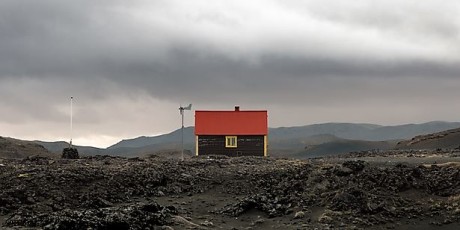
CITAT
Voll Verdienst, doch dichterisch, / wohnet der Mensch auf dieser Erde… (Friedrich Hölderlin: In lieblicher Bläue, 1808)
Citatets strofe lyder:
Ist unbekannt Gott? Ist er offenbar wie die Himmel?
dieses glaub’ ich eher. Des Menschen Maaß ist’s.
Voll Verdienst, doch dichterisch,
wohnet der Mensch auf dieser Erde. Doch reiner
ist nicht der Schatten der Nacht mit den Sternen,
wenn ich so sagen könnte,
als der Mensch, der heißet ein Bild der Gottheit.
VALG
Jeg vælger mig, skulle jeg genbosætte mig, de fire årstiders fire huse hos rensdyrene i Lapland. Eller jeg vælger mig en bræddehytte i et træ i Uganda med den vidunderlige musiker i nabotræet. Måske er der også en som vil danse med mig på verandaen i en dejlig film som den her, som jeg lige har set.
Danmark, 2018, 57 min. Premiere under CAFx’s åbning i Grand Teatret i aften 21:30. 3 yderligere visninger i andre biografer under festivalen. Program med tider, steder og billetbestilling: www.cafx.dk
